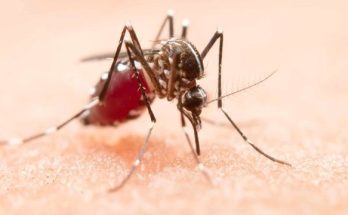Many people think malnutrition only happens when there isn’t enough food. In reality, it can occur even when meals are regular, especially if those meals lack the nutrients the body needs to function correctly. Whether it’s because of poverty, poor food choices, or reliance on processed foods, malnutrition can harm people of all ages and from all walks of life.
The World Health Organization (WHO) reports that malnutrition remains one of the world’s most serious health problems. It is linked to almost half of all deaths in children under the age of five and increases the risk of lifelong conditions, including diabetes, heart disease, and obesity. In many communities, both undernutrition and overeating exist at the same time, a double burden that puts strain on families and the healthcare system.
1. Mental Health Challenges
Good nutrition doesn’t just fuel the body, it feeds the mind too. Deficiencies in omega-3 fats, B vitamins, and iron are linked to mood changes, anxiety, and depression. When the brain doesn’t get enough nourishment, coping with stress and emotions becomes harder.
2. Slower Healing and Recovery
Protein, zinc, and vitamins are essential for repair and recovery. Without them, the body takes longer to heal from illness, surgery, or injury, leaving you weak and vulnerable to new infections.
3. Low Energy Levels
Food is your body’s fuel. When your diet lacks balance, fatigue sets in. Adults may find it difficult to focus or stay productive, while children struggle to concentrate at school or participate in activities.
4. Pregnancy Complications
Pregnant women who don’t get enough of the proper nutrients risk their own health and their baby’s development. Poor nutrition during pregnancy can lead to low birth weight, premature birth, and growth problems.
5. Weak Muscles and Bones
Protein helps build and repair muscles, while calcium keeps bones strong and healthy. When the body doesn’t get enough of these nutrients, it can become fragile, increasing the risk of injuries and broken bones, especially in older people.
6. Weakened Immune System
A poor diet weakens the body’s defences. Without enough vitamins and minerals, it becomes harder to fight off infections such as flu, pneumonia, and tuberculosis, illnesses that can become severe without proper care and nutrition.
7. Increased Risk of Chronic Diseases
Too much processed food and sugar, combined with too little fibre and fresh produce, can lead to serious health problems. Poor nutrition is a significant cause of diabetes, high blood pressure, and heart disease, conditions that continue to rise across the country.
8. Slower Growth in Children
Children who don’t receive proper nutrition can experience stunted growth, both physical and mental. Malnutrition affects height, learning ability, and concentration, creating long-term challenges if not addressed early.
9. Poor Brain Function
The brain needs a steady supply of nutrients, including iron, protein, and iodine, to stay sharp. When the body doesn’t get enough of these, it can become harder to think clearly, remember things, or make decisions. In children, this can slow learning and development, and in older adults, it can lead to memory loss over time.
10. Poor Dental Health
Malnutrition doesn’t only affect your body; it can harm your smile, too. A lack of calcium and vitamin D weakens teeth and gums, increasing the risk of tooth decay and gum disease. It also slows healing after dental procedures.
Malnutrition often goes unnoticed until the effects become serious, which is why awareness and early action are key. Access to affordable, nutritious food and regular health check-ups can make a huge difference. Simple changes, such as eating more fruit, vegetables, beans, and whole grains, while cutting back on sugary or processed foods, can protect long-term health.
Affinity Health helps families take proactive steps through affordable health cover, access to doctors, telehealth consultations, and ongoing support to promote better nutrition and overall wellness.




